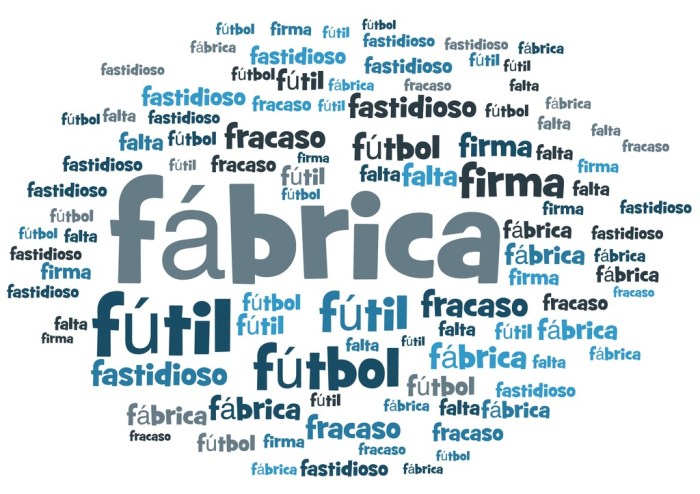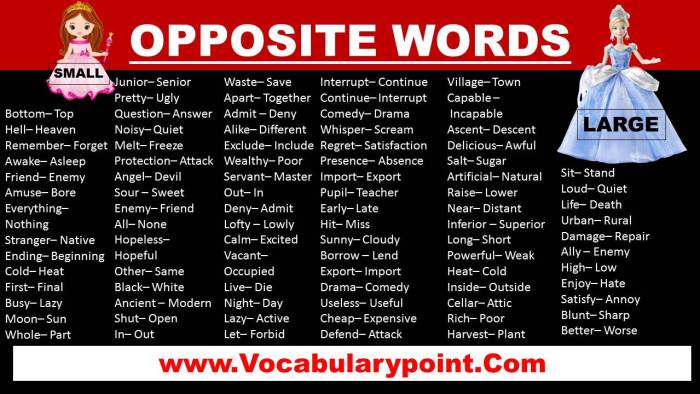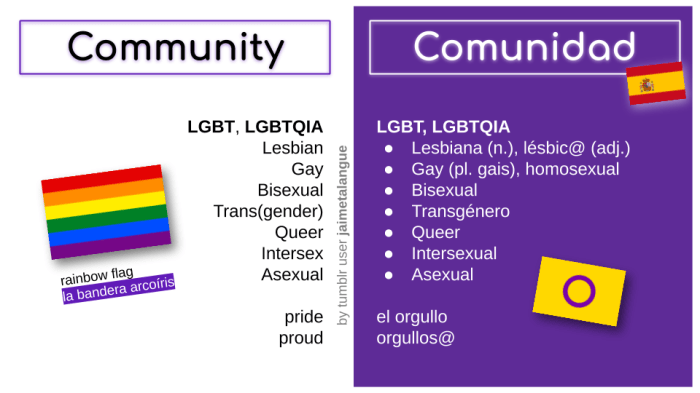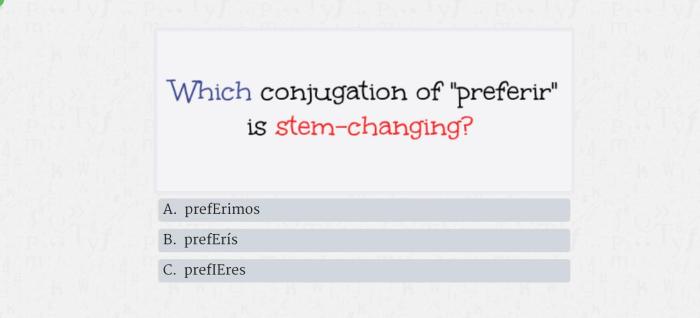Opposite of fea in spanish – Embark on a linguistic adventure as we delve into the opposite of “fea” in Spanish, a word that holds the power to transform perceptions and reveal the hidden beauty that lies within.
The concept of fear and its antithesis has captivated the imaginations of Spanish-speaking cultures, leaving an indelible mark on their language, literature, and societal norms. Join us as we explore the nuances and cultural significance surrounding this fascinating duality.
Opposite of Fear in Spanish

The opposite of “fear” in Spanish is “valor.” Valor means courage, bravery, or boldness. It is a positive quality that allows someone to face danger or difficulty without fear. Valor is often associated with soldiers, firefighters, and other people who put themselves in danger to help others.
Usage
Valor can be used in a variety of ways. It can be used to describe someone’s character, or it can be used to describe a specific action. For example, you could say that a soldier has great valor, or you could say that a firefighter showed valor when they rescued someone from a burning building.
Synonyms for Opposite of Fear

The opposite of “fear” in Spanish has several synonyms, each carrying subtle nuances and variations in meaning.
, Opposite of fea in spanish
- Valor:Courage, bravery, and fortitude in the face of danger or adversity.
- Intrepidez:Boldness, fearlessness, and a lack of hesitation in taking risks.
- Audacia:Daring, recklessness, and a willingness to act without regard for consequences.
- Osadía:Impudence, insolence, and a lack of respect for authority or danger.
- Descaro:Shamelessness, brazenness, and a lack of embarrassment or inhibition.
Antonyms for Fear: Opposite Of Fea In Spanish

The concept of fear in Spanish, “miedo”, is commonly contrasted with a range of antonyms that encompass feelings of courage, bravery, and boldness.
These antonyms stand in stark contrast to the paralyzing effects of fear, offering a sense of empowerment and resilience in the face of adversity.
Valor
- Valor, translated as “valor” in English, represents a courageous and fearless spirit. It is the unwavering determination to face challenges head-on, even in the face of potential danger.
- Individuals possessing valor are often admired for their strength and resolve, as they are willing to confront their fears and pursue their goals with unwavering determination.
Audacia
- Audacia, meaning “audacity” in English, refers to a bold and daring nature. It is the willingness to take risks and step outside of one’s comfort zone, even when faced with uncertainty.
- Audacious individuals are known for their adventurous spirit and their ability to embrace challenges with a sense of excitement and anticipation.
Intrepidez
- Intrepidez, translated as “intrepidity” in English, embodies a fearless and adventurous spirit. It is the quality of being undaunted by danger or difficulty, and of embracing challenges with a sense of excitement and enthusiasm.
- Intrepid individuals are often admired for their unwavering courage and their ability to face adversity with a positive and determined attitude.
Cultural Connotations of Fear and its Opposite

In Spanish-speaking cultures, fear and its opposite carry significant cultural connotations that shape societal norms and values. These concepts are deeply embedded in language, literature, and everyday life.
Language and Literature
The Spanish language itself reflects the cultural significance of fear and its opposite. For example, the word “miedo” (fear) is commonly used to express a wide range of emotions, from anxiety to terror. In contrast, the word “valentía” (courage) is highly valued and associated with strength, honor, and determination.
The opposite of fea in Spanish is “bonita”, meaning beautiful. It’s interesting to note that the case of Farris v. Glen Alden Corp. dealt with a dispute over the definition of “beautiful” in the context of a beauty pageant. The case ultimately concluded that beauty is subjective and cannot be objectively defined.
In Spanish literature, fear and its opposite often serve as central themes. From the epic poems of the Cid to the novels of Miguel de Cervantes, these concepts are explored through characters, plots, and symbolism.
Idioms and Proverbs Related to Fear and its Opposite

The Spanish language is rich in idioms and proverbs that capture the nuances of fear and its opposite. These expressions offer insights into the cultural significance of these emotions and provide a glimpse into the Spanish worldview.
Here is a collection of some of the most common idioms and proverbs related to fear and its opposite, along with their meanings and cultural significance:
Fear
- “Tener miedo a su propia sombra”(To be afraid of one’s own shadow): This idiom describes someone who is excessively fearful or timid.
- “Morirse de miedo”(To die of fear): This expression is used to describe someone who is terrified.
- “Echarse atrás”(To back down): This idiom means to lose courage or to give up in the face of fear.
Courage
- “Tener valor”(To have courage): This expression is used to describe someone who is brave or courageous.
- “Enfrentarse a sus miedos”(To face one’s fears): This idiom means to confront and overcome one’s fears.
- “No hay que tener miedo a nada”(There is nothing to be afraid of): This proverb is used to encourage people to be brave and to not let fear hold them back.
User Queries
What is the opposite of “fea” in Spanish?
The opposite of “fea” in Spanish is “hermosa,” which means “beautiful.”
What are some synonyms for “hermosa” in Spanish?
Some synonyms for “hermosa” in Spanish include “bonita,” “guapa,” and “bella.”
What are some antonyms for “fea” in Spanish?
Some antonyms for “fea” in Spanish include “bonita,” “guapa,” and “bella.”
